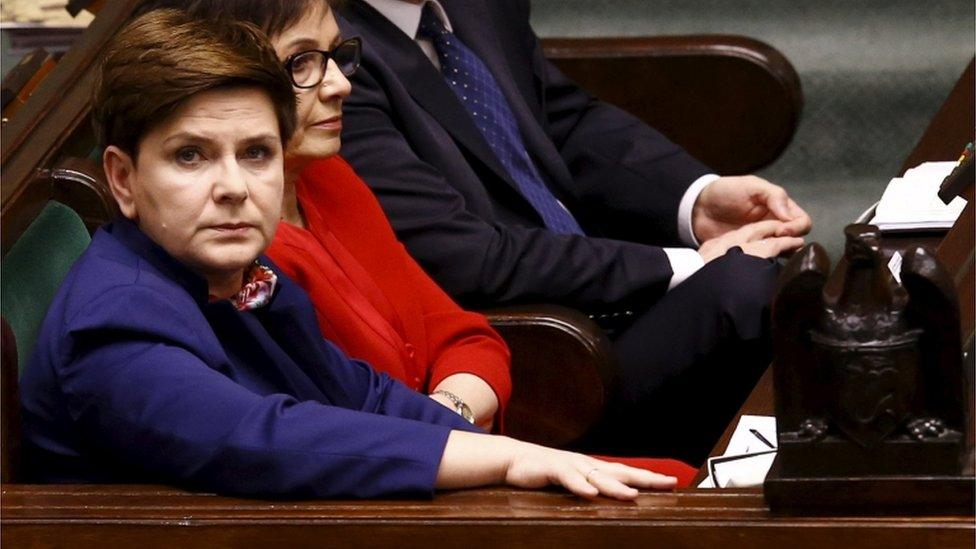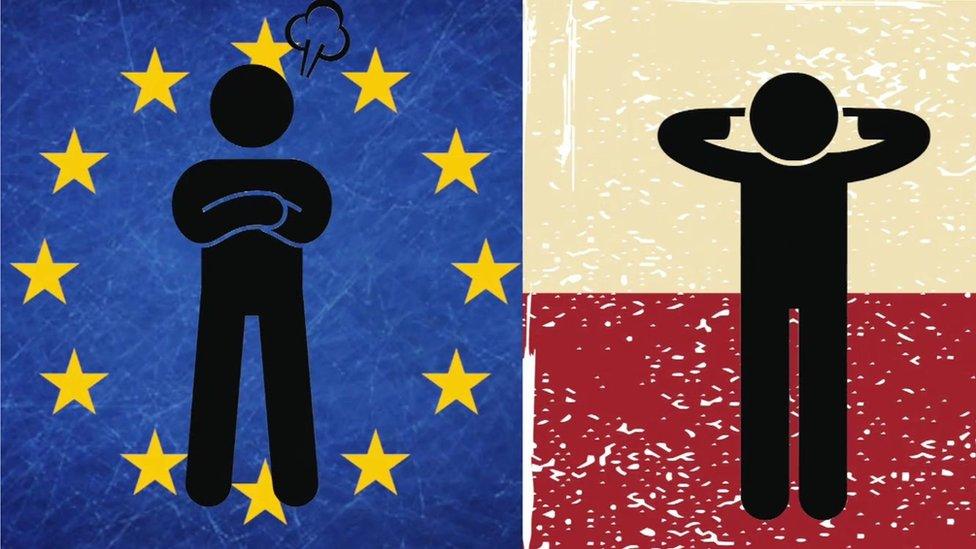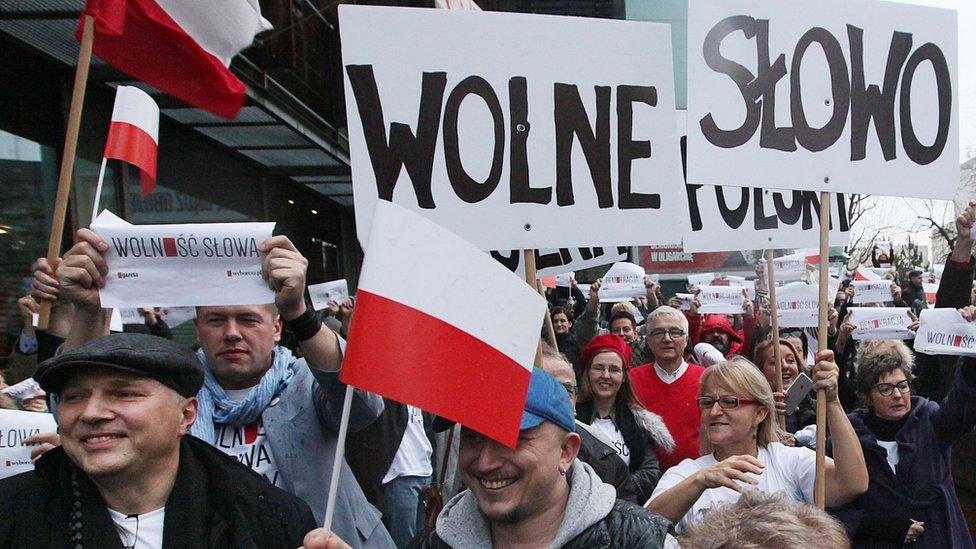EU launches probe into new Polish laws
- Published
The BBC's Paul Adams examines the political scene in Poland
The European Commission has opened an unprecedented inquiry into whether new Polish laws break EU democracy rules.
Vice-President Frans Timmermans announced a "preliminary assessment" under the EU's "rule of law mechanism, external".
Critics of Poland's right-wing government protested at changes to the Constitutional Court and media laws.
The EU mechanism allows the Commission to press a member state to change any measure considered a "systemic threat" to fundamental EU values.
The step comes after President Andrzej Duda approved controversial laws enabling the conservative Law and Justice (PiS) government to appoint the heads of public TV and radio, and choose judges for Poland's constitutional court.
Addressing the Polish parliament on Wednesday, Prime Minister Beata Szydlo denied that her government had violated democratic norms.

Polish Prime Minister Beata Szydlo denied that her government had violated democratic norms
"Democracy is alive and well in Poland," she insisted, adding that the government was carrying out a programme backed by Poles in the October general election that the brought the PiS to power.

Poland's muted response - by Adam Easton, BBC News Warsaw
The Polish government has played down the significance of the European Commission's decision, saying it was "standard procedure".
Government spokesman Rafal Bochenek said the Commission had only discussed Poland because of "speculation" in Western Europe. He added the decision would have no negative impact on relations between Warsaw and Brussels.
Foreign minister Witold Waszczykowski told Reuters news agency the Commission had no right to evaluate changes to Poland's public media law and it had overlooked recent changes in the make-up of the Constitutional Court, which has decided to take in two judges nominated by the governing Law and Justice party.

EU's rule of law action
EU introduced mechanism in 2014 to protect fundamental values
Activated by "systemic breakdown" affecting proper functioning of state's institutions and mechanisms
Three-stage process: Commission assessment and opinion, recommendation of action with time limit and then potential resort to Article 7 of Lisbon Treaty, external
Article 7 can mean suspension of state's voting rights in EU Council, where ministers from 28 states shape EU policy

The Polish prime minister told MPs she would defend Poland in a European Parliament debate next week and represent the whole of parliament and society.
Four channel directors at broadcaster TVP resigned earlier this month in protest at the government's media laws, which place public radio and TV under a new national media council. That change gives the treasury minister the right to hire and fire management.

Thousands of Poles have protested against the new legislation in recent weeks
Most Poles watch or listen to the public TVP channels and one minister has accused news channel TVP Info of broadcasting propaganda for years.
Shortly before the measures came into effect, another law was signed off requiring most rulings by Poland's 15-member Constitutional Court to have a two-thirds majority with at least 13 members present. The ruling party put forward five names to the court, which then appointed two as judges.
Thousands of Poles have protested against the changes in recent weeks in Warsaw, Poznan, Wroclaw and Krakow.
The controversy prompted Polish Justice Minister Zbigniew Ziobro to accuse Mr Timmermans of a "lack of knowledge" of the new laws, insisting his criticism was unfair and unjustified.
Mr Ziobro tweeted, external on Tuesday that the previous coalition government had nominated 14 of the 15 judges in the Constitutional Court whereas only five names had been put forward by the new administration.
Poland summoned Germany's ambassador to Warsaw on Monday after a series of what were seen as "anti-Polish statements" from German EU figures.
European Parliament President Martin Schulz spoke of a creeping coup in Poland and a "dangerous 'Putinisation' of European politics", in reference to the Russian president's leadership style.
And EU Commissioner Guenther Oettinger has accused Poland of threatening "common European values".
- Published13 January 2016

- Published28 December 2015

- Published7 January 2016
